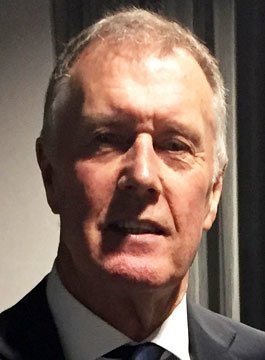Sir Geoff Hurst is an England football legend.
Born in 1941 in Ashton-under-Lyne, Lancashire, Geoff Hurst secured his place among the World Cup greats when he became the first player to score a hat-trick in a World Cup final.
Overlooked for the first three World Cup games despite finishing the 1965-66 season as the First Division’s leading goalscorer with 40 goals for West Ham, Geoff Hurst was only given his chance to partner Roger Hunt in the England attack following an injury to Jimmy Greaves.
Geoff Hurst was called up to take Greaves’ place in the quarter-final against Argentina. With Captain Bobby Moore and young midfielder Martin Peters already in the side, it completed a trio of West Ham players selected by Ramsey at this most crucial stage of the competition.
During the Argentina match, Hurst scored the winning goal and remained in the England squad for the rest of the tournament, even though Greaves had regained fitness by the time of the final.
The 1966 World Cup Final
West Germany took the lead from a goal by Helmut Haller, but six minutes later, Bobby Moore was fouled just inside the German half of the field.
Moore quickly picked himself up and delivered the free kick to Hurst, totally unmarked in his run as the Germans regrouped. The goalkeeper seemed frozen as the header thundered past him, levelling the match. England won a corner in the second half with 15 minutes left on the clock. Alan Ball took it, bending the ball to Hurst on the edge of the area. Hurst turned to shoot, and the ball deflected high into the air, falling onto the boot of Martin Peters, who smashed the ball into the back of the net.
The Germans equalised in the game’s last minutes, forcing extra time. The following 30 minutes shaped the rest of Hurst’s life…
Hurst struck a shot towards the goal, falling backwards as he did so. The ball beat the goalkeeper, hit the crossbar, and bounced down before Wolfgang Weber headed it out for a corner. England’s players wanted the goal, but the German players and fans were adamant that the ball had not crossed the line. The referee was unsure and decided to consult his linesman, who signalled that the ball had crossed the line, and the goal was given.
This goal was one of the most controversial and famous goals in World Cup history.
It looked like a 3-2 win for England, but in the last seconds, just as the referee was about to blow his whistle, Bobby Moore made the final pass to Hurst. The referee had not yet blown his whistle, yet some supporters assumed the game was complete and started invading the pitch. As Hurst collected the pass, BBC commentator Kenneth Wolstenholme made the most famous piece of football commentary ever…
“And here comes Hurst, he’s got… (notices invaders)
…some people are on the pitch, they think it’s all over (Hurst shoots and scores)
…it is now!”
Sir Geoff Hurst – England Football Legend
After the 1966 World Cup, Geoff Hurst continued to play for West Ham and England and was still an internationally feared striker when he was named in Ramsey’s squad for the 1970 World Cup in Mexico.
In 1972, after 499 games and 252 goals, Hurst left West Ham, and joined Stoke City for a reported fee of £75,000.00
His England career ended the same year with yet another game against West Germany in the qualification stages for the 1972 European Championships, which England lost.
Hurst had won 49 caps and scored 24 goals for England.
In 1975, Geoff Hurst was awarded an MBE. Hurst is also one of the few footballers who have been knighted.
Sir Geoff Hurst – After-Dinner Speaker:
Based in Cheltenham, Sir Geoff Hurst travels the world delivering speeches, making personal appearances and taking part in brand campaigns.
As an after-dinner speaker, Sir Geoff takes you on a journey from playing football on the streets to representing his country and playing in the most important football match of his life.
Listen to anecdotes about the other greats Sir Geoff played with, such as Bobby Moore, Alan Ball, the Charlton Brothers, Gordon Banks, Martin Peters and Jimmy Greaves.
Sir Geoff is a true living legend.

